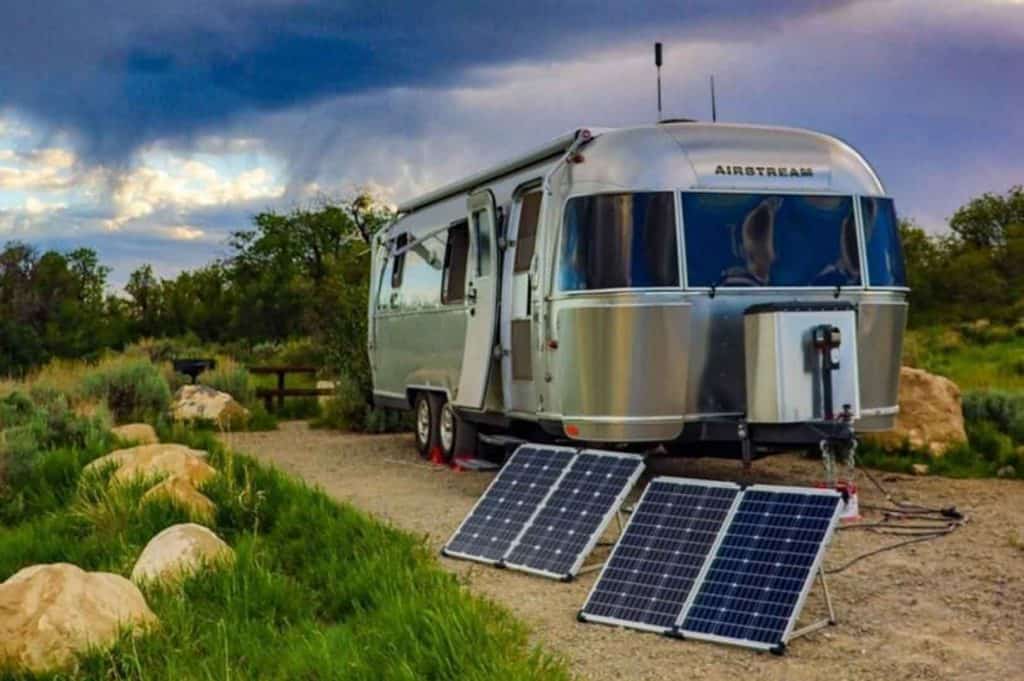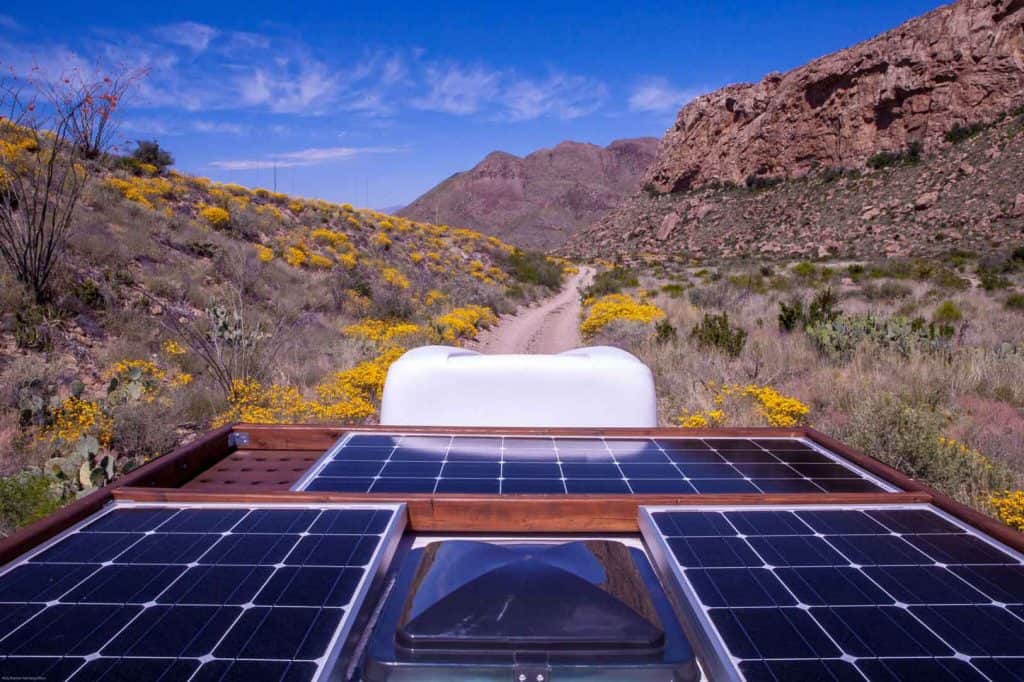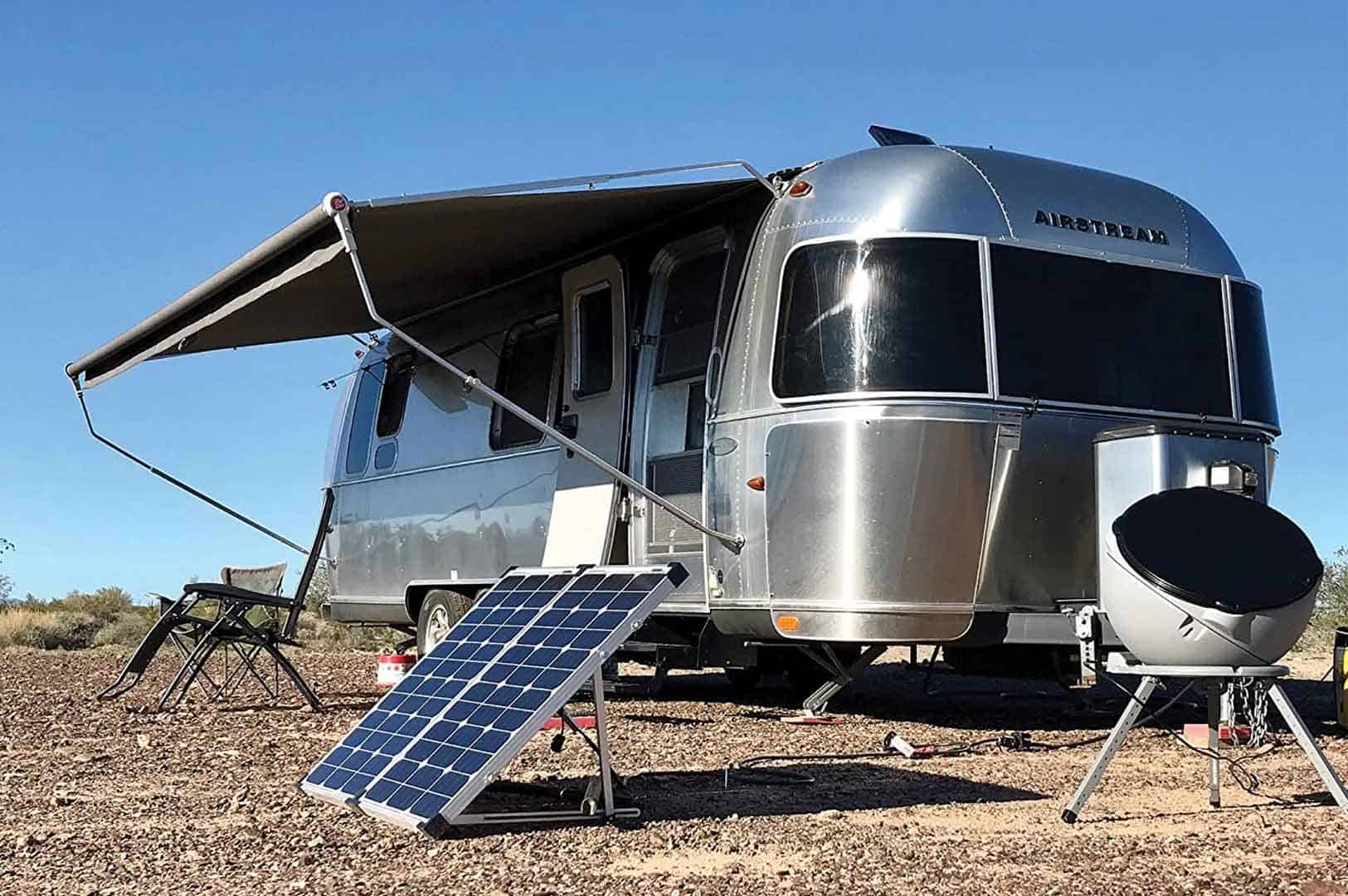RVs are becoming increasingly popular as people look for more ways to enjoy the great outdoors. One of the most appealing aspects of RV ownership is taking your home with you wherever you go.
However, camping somewhere without electrical hookups is a problem, which is why many people are turning to solar power. How much solar power do I need for my RV? You must be thinking about it. Don’t worry, we’re here to help.
Solar power can provide a sustainable and environmentally friendly way to power your RV and save you money in the long run. But what size solar panel for RV is the right size? Let’s find the answer.
How Much Solar Power Do I Need for My RV?
How many watts solar panel do I need for RV? Consider some factors to determine the required solar power you need for your RV.
The first is the size of your RV. The larger your RV, the more energy you will need to power it. Then, think about how much energy you use daily. Suppose you are constantly running the air conditioner or using the microwave. In that case, you will need more solar power than someone who uses their RV more sparingly.
Also, consider the climate you will be using your RV. Camping in a sunny environment will require less solar power than staying in more cloudy or rainy weather.
Despite these factors, there are still ways to figure out how much solar power your RV might require running without a glitch. To determine the total power consumption of your RV, you must calculate the amount of wattage used daily.
However, as you already know, electrical appliances run on DC and AC power. RV solar panels take in the raw energy from the sun and turn it into DC power. Most RVs are configured to run everything on DC power. If someone wants to use AC power, they will need to buy an inverter to convert the DC power into AC.
The issue with an inverter is that it’s costly. Thus, RVers try to keep things simple and only rely on DC power.
You also need to convert watts to amp-hours. The simple formulae are:
- Amp Hours x Volts= Watts
- Watts/volts= Amp Hours.

You might like: Best Flexible Solar Panels for RV
Appliance Energy Usage Method
It’s a straightforward method to use, but it’s also time-consuming. You must check the wattage of all the appliances and devices and how long you use them daily.
Looking closely, you will notice that all electric appliances have energy ratings labeled in amps or watts. Look at the item’s manual if you don’t find the rating stamped or printed on your devices.
Microwaves, refrigerators, or AC run on larger amounts of watts. That is why it is essential to figure out the possible duration of operating each appliance.
Now, you must inspect each appliance’s watt-hour rating and list them. Then calculate the number of watts per appliance and multiply it by how many hours you will use a specific one. Let’s say using a hairdresser every morning for five minutes is about 0.1 hours, meaning you will need 160 watt-hours daily.
You must repeat this process for all your devices and appliances. Add the collected daily Watt-hour consumption together to get the total. The total number of Watt-hour is a good indicator of the number of solar panels you need.
For instance, an air conditioner requires 1,000 watts to run for four hours. In that case, your solar system needs to provide 4,000 watt-hours to run one air conditioner.
Always go above your estimate rather than falling short. Also, ensure that you have covered every electrical item in your rig.
How much solar power do I need for my RV? By using the appliances’ power rating, you can calculate it pretty quickly.
Camping Test
With this method, you must go camping somewhere with a power backup source nearby in case you use up all your power sources.
Install a battery meter that will help you with monitoring your battery discharge. It will significantly help you get an idea of how much power your appliances use.
Next, learn the initial amp-hour of your battery. Compare it with the amp-hours used in the camping test. Then measure the amount left at the end of your trip. You might need an alternative if the RVs battery level goes below 50%.
The test works better when the power usage is limited, so use it when living in a small rig alone or with another person.

Read more: How to Install Solar Panels on an RV
How Many Solar Panels Do I Need for My RV?
How much solar power do I need for my RV? After figuring out your solar power requirement and facts limiting the RV solar system, you should find out how many solar panels you might need. Now the answer to that question depends on a few things.
Solar power is generated from photovoltaic cells exposed to sunlight. But depending on the weather, shade/camping site, or area, the power generated from solar panels can vary.
Many assume that if 100 Watts of a solar panel is in the sun for about eight hours during the day, it will generate 800 Watt-hours of energy. But in reality, a 100-watt solar panel will produce about 350 Watt-hours per day because of its efficiency impacted by the above causes.
To estimate how many 100-watt solar panels you need, divide your total daily energy consumption by 350. If your estimated consumption is 1,755 Watt-hours per day, you will need around five 100-Watt solar panels (1,755/350 = 5).
Besides solar panels, you will also need batteries to reserve power in an emergency or if the weather is not favorable. Usually, a 12V battery can give you 100 amps hours of electric storage, equivalent to 300 Watts of solar panel energy. Most RVs come with a 12V battery power source, but if you want to store more energy, you can install two 12V batteries or four 6V batteries and hook them up with the RV solar system.
Conclusion
Use this article as a guide to understanding how to calculate your RVs daily power consumption.
If you are driving all day, your RV power consumption will likely be less than you think. Also, there are camping grounds that can provide you with electric energy in case you run out.

